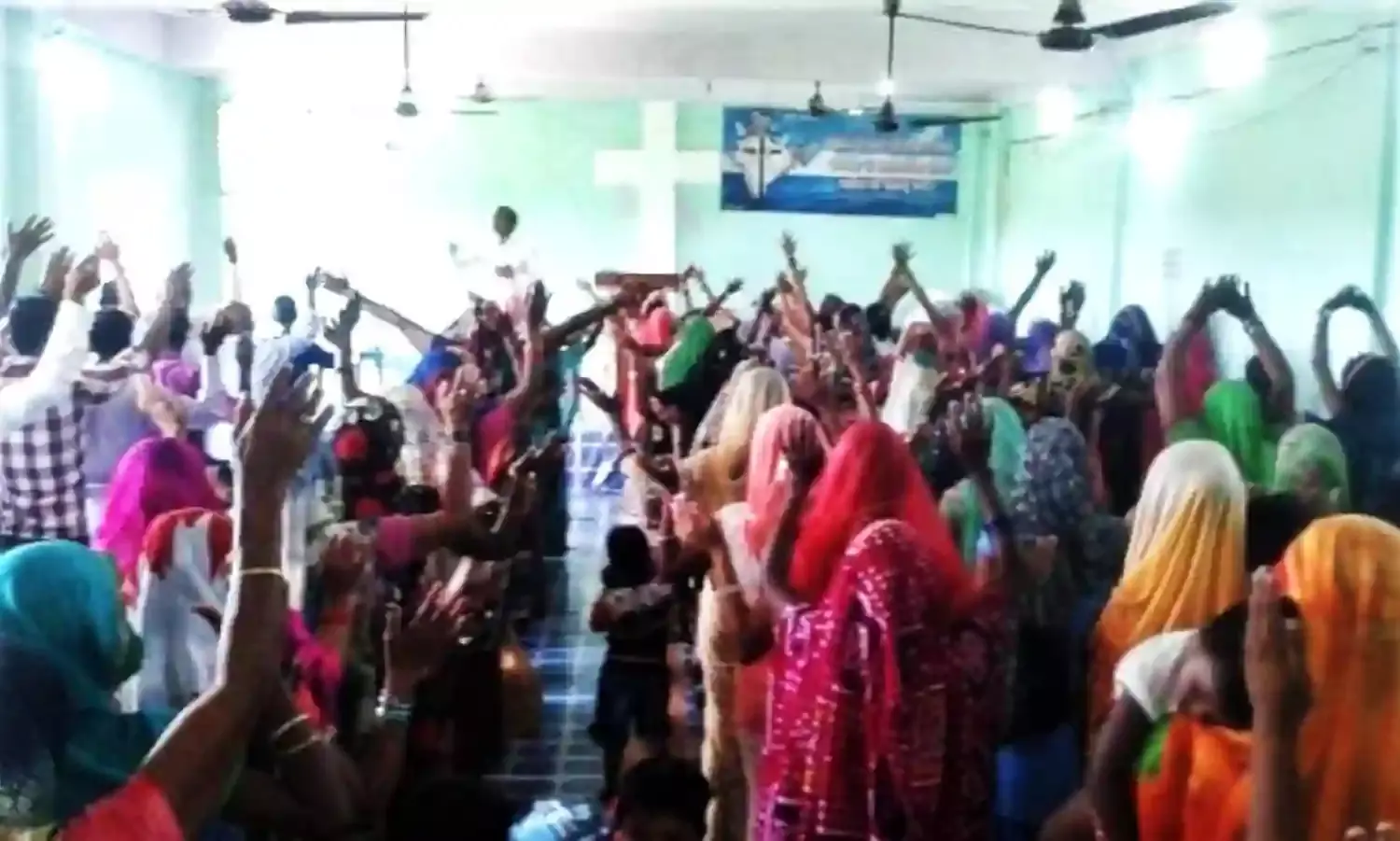Series of Attacks Targeting Christians in Uttar Pradesh
“They are preparing the ground for an anti-conversion law”

NEW DELHI: The small, few hundred strong Christian population of Jaunpur in eastern Uttar Pradesh has over the past fortnight reportedly come under concerted attack from right wing fundamentalist groups operating with the connivance of local police.
Pastors have allegedly been arrested and taken from their homes in the middle of the night, roads leading to churches have been blocked and churchgoers forced to return home by the police, and other pastors have been threatened, beaten and prevented from conducting church service, according to former Member of the Delhi Minorities Commission A.C. Michael.
Michael further said that those arrested have been charged with performing “fraudulent conversions”. Many of those taken into custody were not charged at all. Police say they were acting on the basis of media reports accusing church officials of luring residents with miracles and inducements.
Jaunpur town is an hour and a half by road from Varanasi, Prime Minister Narendra Modi’s parliamentary constituency.
The following incidents targeting the Christian minority in Jaunpur district have reportedly taken place so far this month:
September 5 Pastor Durga Prasad and several others arrested
September 11 Pastor Rajendra Chouhan arrested along with six others, reportedly under pressure from right wing groups, and released on bail three days later
September 13 Pastor Gulabchand taken into custody along with three other church leaders, and released next day without any charges being filed
September 13 A Friday fasting prayer being led by Pastor Ravindra attacked by a mob of religious fanatics
September 13 Church leader Ram Milan beaten up by the brother of the village sarpanch who forces him to stop a prayer meeting
September 13 Disrupting a prayer meeting, police take into custody Pastor Ram Ratan and Pastor Thomas Osoof (from Mumbai)
September 16 Police block all roads leading to the church in Bhulandih and ask Sunday churchgoers to return home. Deepak, Rahul, Chandrabhushan, Rajendra and Virendra of the Bhulandih Church arrested, and released on bail three days later
September 16 Pastor Anil Kumar, Praduman, Deepak Kumar, Monu and Ravinder arrested during a church service, and released on bail two days later
September 23 A mob of religious fanatics accompanied by local police (pictured) go around the village shouting slogans, then enter the church, disrupting the Sunday service. Pastor Ashok Rajbhar, his father, and three other members of the church taken into custody. Pastor Rajbhar’s father later released
September 23 Another pastor conducting Sunday service arrested
September 23 Pastor Chabilal arrested while conducting Sunday service
September 24 Police ask Pastor Nanhe Lal to close down the church.
A.C. Michael believes there is a political purpose to the attacks. “It is part of a strategy to create fear among marginalised communities, especially the Christian minority. They are preparing the ground for the introduction of a so-called Freedom of Religion bill in U.P., which is nothing but an anti-conversion law.”
Despite the “freedom of conscience and the right freely to profess, practise and propagate religion” guaranteed by the Constitution, several states including Odisha and Madhya Pradesh have enacted such laws in the past, which are reportedly used to target Christian missionaries in particular.
“But in U.P. nothing is happening in terms of conversion, they don’t need such a law,” Michael said. “We asked the police on what grounds they were doing this, and they told us they saw on Zee News that forcible conversions were taking place. But if media reports can be the basis for arrests, then senior Ministers should be in jail!”
He added that large media houses appear to be complicit in the attacks, by publishing false reports. “The Dainik Jagran went a step ahead and reported that a pastor even kidnapped a girl and demanded property from her family. How can a pastor, living peacefully in the community, kidnap someone? We checked and the girl they have named is still there, the pastor is still there. No such report could have been printed without an editor’s approval. So why are they doing such things?”



